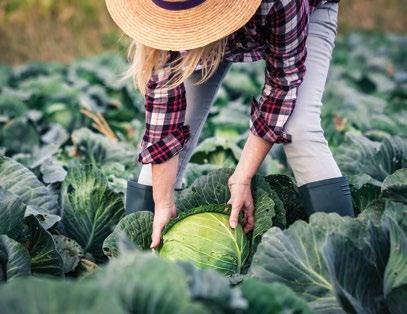
12 minute read
YOUR HEALTH
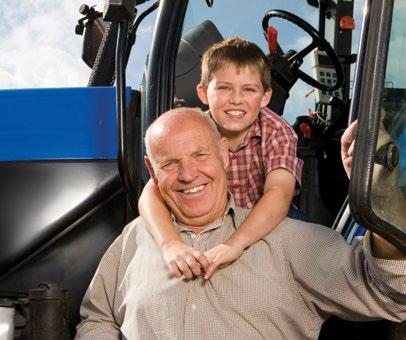
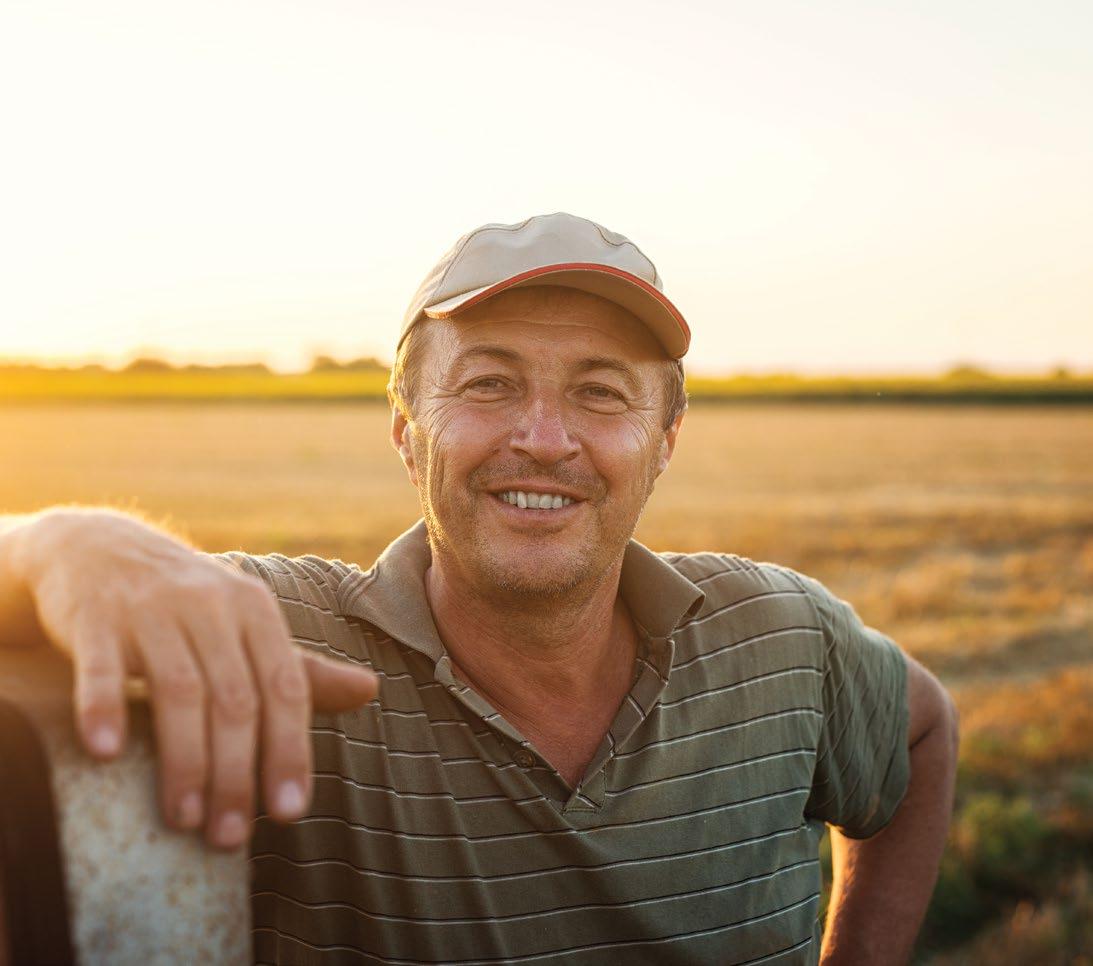
Advertisement

Looking after ourselves in busy times
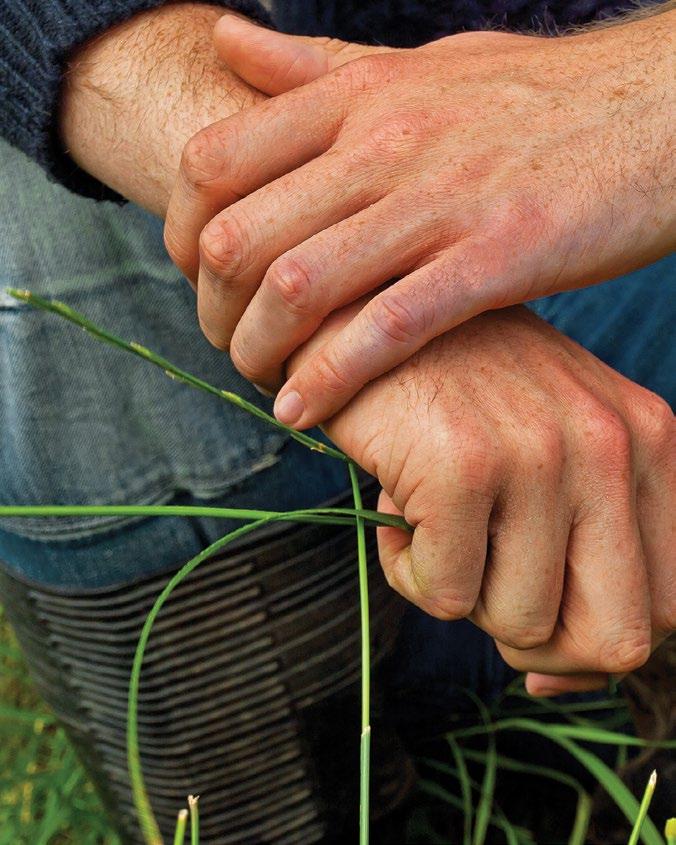
BY REGIONAL MEN’S HEALTH
For farmers, seeding and harvest are a couple of extremely busy times of the year. One of the most important things to consider looking after, during these times, is our most valuable resource — us.
Having to complete tasks by a set date imposes time pressure and this may make us take short cuts and if we take short cuts regarding our wellbeing it increases our risk factors dramatically. It is a time when relationships come under pressure, our physical health is ignored, and accidents can happen.
Research into truck crashes by the Truck Crash Research Centre based in South Australia has some thought-provoking outcomes.
One of the research outcomes is that most truck accidents (more than 90%) happened on the outward-bound journey of the truck trip. We need to ask ourselves why is this? There are many reasons for this, but primarily it is a combination of being physically tired coming off the holiday break and/or mentally our headspace is not focused on the job at hand, we are not operating in the present. What us blokes don’t do well is consider the consequences of risk taking — it won’t happen to me. Consequences are something we must live with, so in our seeding and harvest preparations we need to limit our personal risk, and if what we’re planning is an overstretch, reconsider the options.
f FATIGUE can often lead to expensive mistakes.
In addition to the usual preparations perhaps we should follow the lead of other industries, such as mining and construction, where clear guidelines on safe parameters for work have been implemented. Some things to reflect on when considering your wellbeing include:
• A well briefed work crew (often
our partner and family): keep those working with us briefed on daily activities, unfortunately with farming this doesn’t happen as well as it could which often leads to unnecessary disputes and increased tension and frustration • Fatigue management: limiting our working time to no more than 14 hours in a 24-hour period. Seeding might be over a relatively short period, but this work strategy should not be compromised. The only solution to fatigue is taking a break and sleeping.
Getting off the tractor/machine and doing other jobs is not good enough, you need to sleep • Factor in regular breaks: this also reduces the impact of fatigue and increases our capacity to beat boredom, which can often lead to expensive mistakes and machine damage • Pre-start exercises: I would be surprised if any farmers begin a shift with some limbering up exercises.
It is a known fact that this type of start to the day significantly reduces muscle injuries • Suitable dietary needs: how often are you eating and what are you snacking on? It is not just about good meals it is also about good snacks that are nutritious and correctly timed. A good meal is very beneficial at the beginning of a shift and a light meal at the end is beneficial in helping to promote good sleep • Adequate sleep: for most people this is about seven to eight hours in every 24-hour cycle. It is not possible to reduce this and still function properly. Remember this is sleep not just being in bed! Seeding and harvest are hectic times of the year, a controlled and planned approach will pay dividends. Enjoy it; it is a great time.
MORE INFORMATION
For more information contact the Regional Men’s Health Initiative on (08) 9690 2277 or email menshealth@4blokes.com.au.
Raising awareness of mental health
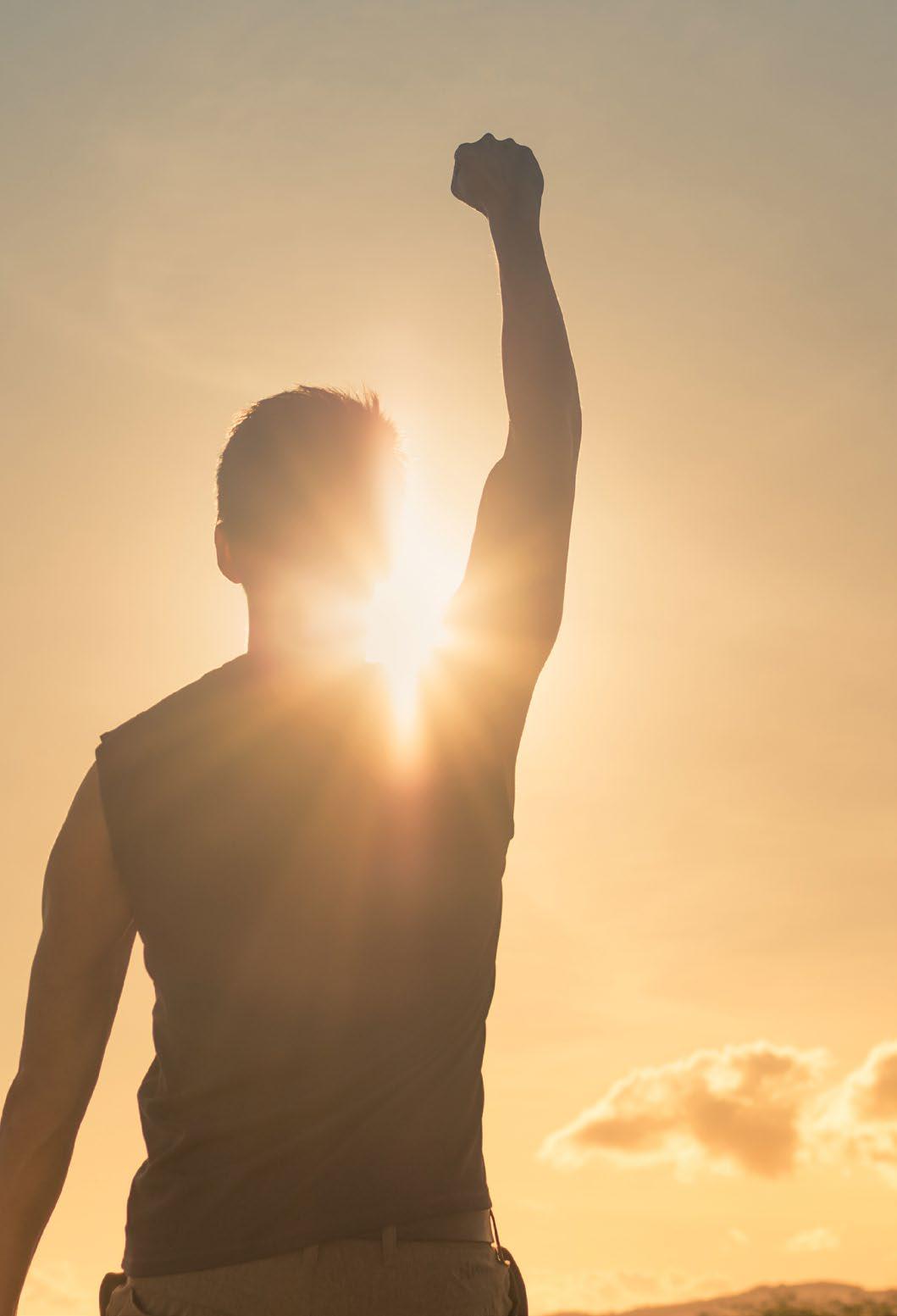
f THERE are many organisations available for people who are looking for more information about mental health. Events in Australia over the past two years — such as bushfires, floods, and the COVID-19 pandemic — have taken their toll on many people’s mental health. Therefore, it is important to look after yourself and each other. Knowing where to go for information on mental health can be a hurdle for many people, so AUSVEG has compiled this list of resources that may help to navigate this sensitive space.
Organisations
f THE ongoing COVID-19 pandemic and traumatic events such as floods can lead to long-term psychological distress.
In 2020–21, the Australian Bureau of Statistics conducted the first cohort of the National Study of Mental Health and Wellbeing — a component of the wider Intergenerational Health and Mental Health Study.
The figures are startling, with 3.4 million Australians seeing a health professional for their mental health in 2021–21.
The ongoing COVID-19 pandemic and traumatic events such as floods can lead to long-term psychological distress. Therefore, it is vital that we start talking more openly about the importance of discussing mental health and seeking help if you or someone you know is experiencing difficulties.
There are organisations available for people who are looking for more information about mental health and they can give advice on how to deal with personal mental health issues or those that arise in your workplace, communities, friends, or families.
Beyond Blue

Beyond Blue has been providing supports and services to people in Australia for 20 years. Beyond Blue works with the community to improve mental health and prevent suicide, so that all people in Australia can achieve their best possible mental health.
Through its Beyond 2020 Strategy, it’s working across three strategic priorities: 1. Promoting mental health and wellbeing so people have greater knowledge, feel safe to talk openly about their issues and are supported to ask for help when they need to. 2. Being a trusted source of information, advice, and support so we can all better understand how to maintain our mental health and take steps to recover from mental health conditions. 3. Working together to prevent suicide by playing a lead role in the national effort to prevent suicide through research, information, advice and support, and advocacy.
For further information on anxiety, depression or suicide visit: beyondblue.org.au or call 1300 22 4636 (24 hours/7 days a week). To chat to a trained mental health professional, please visit:
beyondblue.org.au/get-support/getimmediate-support Black Dog Institute
Black Dog Institute is a proudly independent not-for-profit medical research institute affiliated with The University of New South Wales. Its focus today has expanded to address new challenges and opportunities in mental health — suicide prevention, digital innovation, lived experience, youth, and workplace mental health. Its work in mood disorders continues through investigation of new and better ways to treat and prevent conditions like anxiety and depression through digital tools and novel treatments.
For more information, visit:
blackdoginstitute.org.au
3.4 million
Australians saw a health professional for their mental health in 2021–21
13%
of people saw a GP for their mental health
8%
of people saw a psychologist for their mental health
15%
of Australians aged 16–85 years experienced high or very high levels of psychological distress
Regional Men’s Health Initiative
The Regional Men’s Health Initiative is a program which focuses on improving the health and wellbeing of men in rural Western Australia. The Initiative compliments existing country health services and other allied services to empower men, their families, and communities to take responsibility for their wellbeing and health.
For more information, visit regionalmenshealth.com.au or call (08) 9690 2277.
Lifeline
Lifeline is a national charity providing all Australians experiencing emotional distress, with access to 24-hour crisis support and suicide prevention services. It is committed to empowering Australians to be suicide-safe through connection, compassion, and hope.
For 24/7 crisis support and suicide prevention services, call Lifeline on 13 11 14.

The online Crisis Support Chat service is also available every night at:
lifeline.org.au/crisischat
MensLine Australia
MensLine Australia is the national telephone and online support, information, and referral service for men with family and relationship concerns. The service is available from anywhere in Australia and is staffed by professional counsellors, experienced in men’s issues.
For more information, visit: mensline.org.au or call 1300 78 99 78.
MindSpot
MindSpot is a free service for Australian adults who are experiencing difficulties with anxiety, stress, depression, and low mood. It provides assessment and treatment courses or can help find local services that can help. The MindSpot team comprises experienced and Australian Health Practitioner Regulation Agencyregistered mental health professionals including psychologists, clinical psychologists and psychiatrists who are passionate about providing a free and effective service to people all over Australia. It has a dedicated IT team to ensure that this happens as securely and efficiently as possible.
For more information, please call 1800 61 44 34 or visit mindspot.org.au
SANE Australia
SANE Australia is a national mental health charity making a real difference in the lives of people affected by complex mental health issues through support, research, and advocacy. Counsellors are available via phone, web chat or email from 10am to 10pm Monday to Friday AEST/AEDT.
For more information, please call the SANE Helpline on 1800 18 SANE (7263) or visit sane.org
Suicide Call Back Service
Suicide Call Back Service offers free professional 24/7 telephone counselling support to people at risk of suicide, concerned about someone at risk, bereaved by suicide and people experiencing emotional or mental health issues.
SOMEONE IS THREATENING SELF-HARM
What can I do? Lifeline has developed a range of free toolkits to provide information and assistance during challenging times. These include a self-help resource to help people cope with natural disasters; a selfharm factsheet; a toolkit for helping someone at risk of suicide, and much more.
Browse and download Lifeline’s range of toolkits and factsheets here: lifeline.org.au/resources/
toolkit-downloads/
Still unsure about what to do or need a debrief? Those who are worried about a loved one or community member who is threatening self-harm can contact Lifeline on 13 11 14 for 24/7 crisis support and further advice.
It also offers free professional 24/7 online counselling support.
Call 1300 659 467 or visit:
suicidecallbackservice.org.au
MORE INFORMATION
These are just some examples of the mental health services available in Australia. More can be found at ausveg.com.au/mental-
health-industry/resources-2/
If you require emergency assistance, please contact 000.
Women
were more likely to experience high or very high levels of psychological distress than men (19% compared with 12%)
20% 1.9% 15–44y
Australians aged Suicide was the 15th Suicide was the most mental health common cause of death for adults aged 15–44 most common cause of death overall, accounting for 1.9% of deaths 16–34 years experienced high or very high levels of psychological distress
No pain, no gain

BY REGIONAL MEN’S HEALTH
When I think back to my younger years of intense physical activity, I can still hear the piercing scream of my gruff footy coach … “Push through the pain barrier” and my favorite: “Get some bloody mongrel in you!”
To push through those grueling preseason training sessions of hill sprints, gut runs, and burpees, you needed some encouragement. Let’s face it, when you feel like your lungs are about to explode and a spew is only minutes away, your mind and body are telling you one thing… stop! I think a lot of us would agree that motivational quotes can help us get through some challenging times in our life that cause pain, in a physical, mental, or social/spiritual context.
f WHILE pain is uncomfortable and unpleasant, it is usually there to tell us something is wrong. To grow stronger in a physical or mental context, suffering is sometimes the price we pay to gain something we want. There is often the common belief that greater value and reward exists for those who put in the effort, work hard, and endure some pain… let’s face it, life was never meant to be easy. Pain is a word we regularly use at RMHI and we often come across people with various levels of physical pain and/or emotional pain (brought on by various situational stressors). While pain is uncomfortable and unpleasant, it is usually there to tell us something is wrong. Ironically, the initial stages of pain protect us from further injury by initiating a reaction to protect what has been damaged.
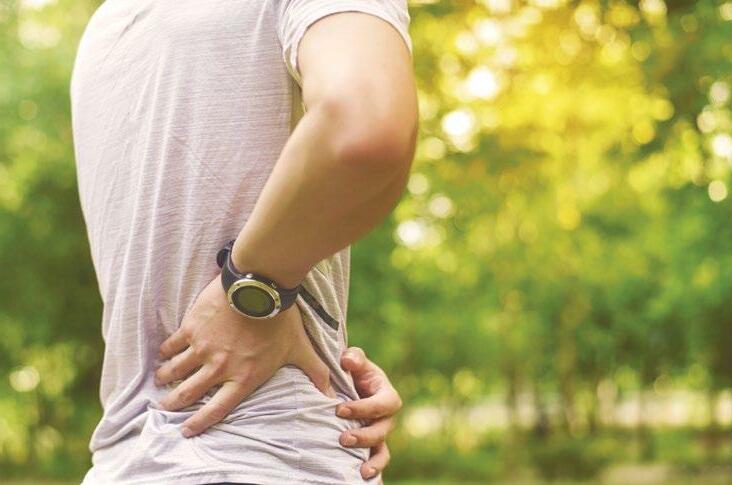
Pain can go from being a small nuisance which makes us irritable, all the way to full on, debilitating or chronic pain.
This persistent or chronic pain can even involve the pain system becoming overprotective resulting in pain sensations being present even when the body tissues are safe or our injury/illness has healed. Pain is different for everyone but here are some basic tips we should all use to manage it:
• Getting a correct diagnosis in a
timely manner: Booking in with a GP (to get a referral), physio, or psychologist (when it comes to emotional pain) can help pinpoint the cause of our pain. • Keeping active: This is a tough one because when we are in pain it can sometimes be hard to get moving.
Adapted exercise and movements can be prescribed by a physio; just getting outdoors boosts endorphins which can improve mood and block pain signals. • Pain medication: Some of us can be hesitant to take stronger pain relief because it can affect our ability to function normally and operate heavy machinery. But medication can be the key to reducing inflammation and pain which helps us to get moving and regain our function quicker. • Assess our diet: Certain foods and excessive alcohol use can contribute to inflammation and weight gain, especially when we are not moving as much as we normally would.
• Alternative treatments and
relaxation: Things like massage, acupuncture, meditation, listening to music and even the use of ice and heat can be a good starting point.
Finding ways to relax is vital. While I have always been one for getting out, enjoying life, and taking a few risks, I now understand those words of warning from mentors in my life… “You’re going to regret that one day!” So, take care of those aches and pains because trying to push through the pain barrier will not necessarily help in the long run.
MORE INFORMATION
For more information contact the Regional Men’s Health Initiative on (08) 9690 2277 or email menshealth@4blokes.com.au




